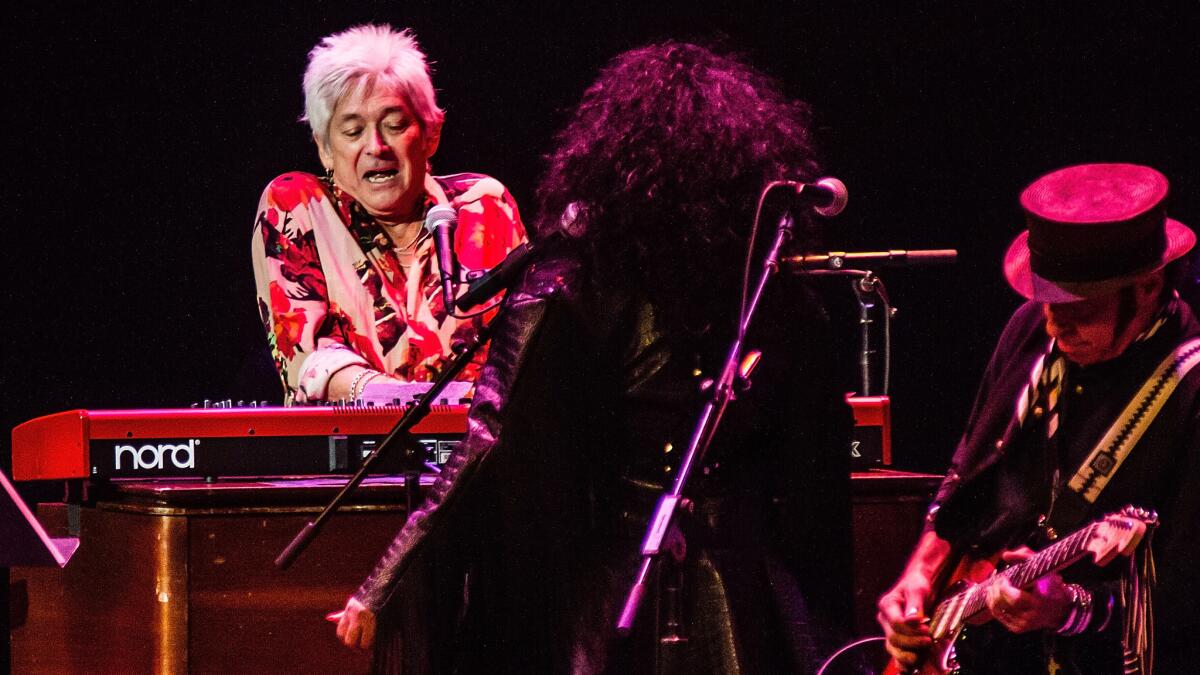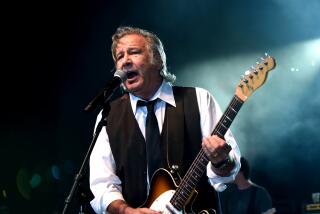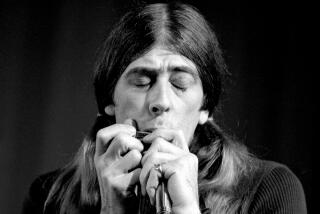Ian McLagan dies at 69; rock keyboardist played with the Small Faces

Ian McLagan, who as keyboardist for the Small Faces and later the Faces was part of the first generation of British rockers to gain a wide American following, died Wednesday in Austin, Texas. He was 69.
His death, a day after he had a stroke, was announced on his website.
McLagan joined Small Faces in 1965 and with a jubilant style reminiscent of jazz organist Jimmy Smith, quickly began to help shape the band’s festive rock sound. Its best-known song in the United States was “Itchycoo Park,” a 1968 Top 20 hit that Rolling Stone magazine called “one of the all-time great psychedelic pop songs.”
When singer-guitarist Steve Marriott left the band in 1969, Rod Stewart signed on to replace him and with McLagan, guitarist Ron Wood, bass player Ronnie Lane and drummer Kenney Jones rebranded the group as the Faces.
The Faces’ 1971 album “A Nod Is as Good as a Wink…to a Blind Horse” made Billboard’s Top 10 with the hit single “Stay With Me.”
Both bands were inducted into the Rock and Roll Hall of Fame in 2012.
After the Faces broke up in the mid-1970s with Stewart’s departure, McLagan was Stewart’s organist on such hits as “Maggie May” and “You Wear It Well.”
He also collaborated with several of the rock era’s most stellar acts, including Chuck Berry, Bob Dylan, Bonnie Raitt, Bruce Springsteen and the Rolling Stones. He performed on the Stones’ 1978 album “Some Girls,” including the organ solo on the hit single “Miss You.”
In his last decades McLagan led his own Bump Band, which became a fixture on the Austin music scene. He also released several solo albums, including a 2008 tribute to Lane, his Small Faces bandmate who died of multiple sclerosis in 1997.
McLagan was born in London on May 12, 1945. As a teenager he was entranced by American jazz and blues, particularly the work of Muddy Waters and Thelonious Monk. Self-taught, he was playing organ for small British bands, including the Muleskinners, before he was 20.
He was depressed over the travails of one of his bands when the manager of Small Faces called him. “It felt like I was just plucked out of nowhere,” he told National Public Radio in 2009.
Following in the tracks of the Beatles and the Stones, the Small Faces and its successor helped define the mod sounds of the mid-1960s and 1970s.
After the Faces split up, McLagan continued to perform around the country, including a 1981 concert in Pasadena in which he carried on the band’s “ideal of playing sloppy, unaffected rock ‘n’ roll just for fun — polish and glamour be damned,” wrote Los Angeles Times critic Steve Pond.
McLagan lived in Los Angeles for 16 years before moving to Austin in 1994 with his wife Kim, the ex-wife of drummer Keith Moon.
She died in a car accident in 2006. McLagan’s survivors include his son, Lee; a brother, Mike; and a granddaughter.
His 2000 memoir “All the Rage” described four decades in rock, using drugs, trashing hotel rooms and frolicking with groupies. “You can’t read the book without wishing anew every other page or so that you were sitting across from McLagan in a cozy pub with a couple of cold pints on the table,” John Foyston wrote in a review for the Oregonian.
On the day he died, McLagan had been scheduled to begin a North American tour. His manager, Ken Kushnick, called McLagan “a true rock ‘n’ roll spirit.”
More to Read
Start your day right
Sign up for Essential California for the L.A. Times biggest news, features and recommendations in your inbox six days a week.
You may occasionally receive promotional content from the Los Angeles Times.






